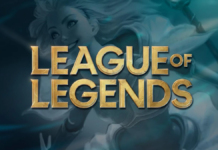Real Money Trading (RMT) in Massively Multiplayer Online Role-Playing Games (MMORPGs) has been a topic of debate among gamers and developers for years. This practice involves players exchanging real-world currency for virtual goods, services, or in-game currency within the gaming environment. While some view RMT as an innovative business model that benefits both players and game creators, others see it as a controversial and potentially harmful practice, likening the use of real money in MMORPGs to playing online casino games.
In this article, we’ll delve into the world of RMT in MMORPGs, examining its growth, implications, and future.
The Rise of Real Money Trading in MMORPGs
As MMORPGs gained popularity in the early 2000s, the demand for in-game items, currency, and services grew exponentially. Players began looking for ways to obtain these virtual treasures without spending countless hours grinding through the game. Consequently, a market emerged where players could use real money to purchase in-game assets from other players or third-party websites.
This interest in RMT quickly caught the attention of game developers, who started incorporating microtransactions into their titles. These transactions allowed players to buy virtual goods directly from the developer using real-world currency, creating a new revenue stream for game creators while providing a legitimate avenue for RMT enthusiasts.
Arguments in Favor of Real Money Trading
Economic Benefits for Developers and Players
One of the primary arguments supporting RMT is the economic benefits it provides for both developers and players. By offering microtransactions or facilitating player-to-player transactions, developers can generate additional revenue beyond initial game sales and subscriptions. This income can be used to further develop and enhance the gaming experience for all players.
From a player’s perspective, RMT can be viewed as a way to save time and effort. Some gamers may not have the luxury of investing countless hours into a game to obtain rare items or high-level characters. By purchasing these assets through RMT, they can immediately enjoy aspects of the game that may have otherwise remained inaccessible due to time constraints.
Supporting the Gaming Community
RMT can also foster a sense of community within MMORPGs. Players who engage in trading can establish relationships with other gamers, creating bonds and friendships that extend beyond the confines of the virtual world. Additionally, RMT can lead to the growth of third-party websites and forums dedicated to facilitating trades, nurturing a community of like-minded individuals who share a passion for their favorite games.
The Controversy Surrounding Real Money Trading
In-Game Economy Imbalances
One of the primary concerns surrounding RMT is its potential to disrupt the in-game economy. When players inject real-world currency into the game environment, it can result in inflation and imbalances that harm the overall gameplay experience. For example, if wealthy players are willing to spend vast sums on rare items, it can drive up prices for everyone else, making it difficult for those without access to significant funds to compete.
Unfair Advantages and Pay-to-Win Scenarios
RMT can also create situations where players who invest more money into a game gain an unfair advantage over those who do not. This pay-to-win scenario can make it challenging for players without disposable income to progress or enjoy the game fully, leading to frustration and resentment among the community.
Illegal Activities and Account Security Risks
Another concern is the potential for RMT to encourage illegal activities such as hacking, scamming, or fraud. Players seeking to profit from RMT might attempt to steal virtual goods or in-game currency from other players through deceptive means. Additionally, third-party websites that facilitate RMT transactions may not always be trustworthy, posing a risk to users’ account security and personal information.
Regulating Real Money Trading
In response to these concerns, many game developers have implemented measures to regulate RMT within their gaming environments. Some of these methods include:
- Official In-Game Marketplaces: Developers can create designated marketplaces within the game where players can buy and sell virtual goods using real-world currency, allowing for controlled and legitimate RMT transactions.
- Banning Third-Party RMT Websites: By actively monitoring and blocking access to third-party websites that facilitate RMT, developers can reduce the risks associated with illegal trading practices and account security issues.
- Account Sanctions: Developers can impose penalties on players found to be engaging in unauthorized RMT practices, such as temporary or permanent bans, loss of in-game assets, or even legal action.
Conclusion: Balancing Innovation and Controversy
As MMORPGs continue to evolve, the debate surrounding Real Money Trading is likely to persist. While there are valid arguments supporting the economic benefits and sense of community that RMT can provide, it’s essential for developers to recognize and address the negative consequences associated with this practice. Ultimately, finding a balance between fostering innovation and maintaining fair, enjoyable gameplay experiences should remain a key priority for MMORPG creators moving forward.




